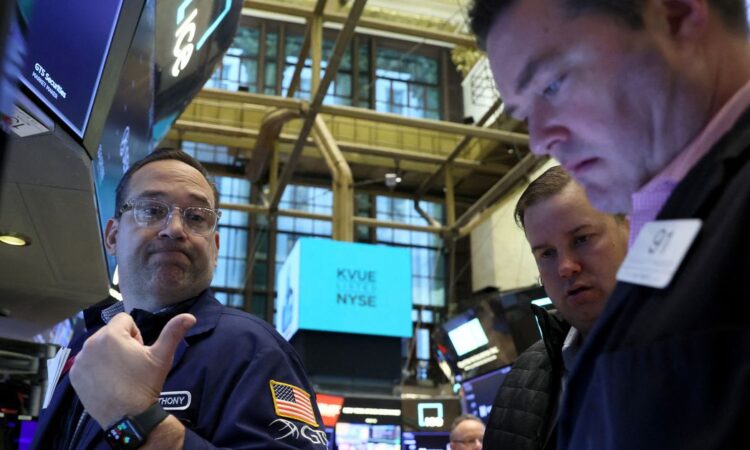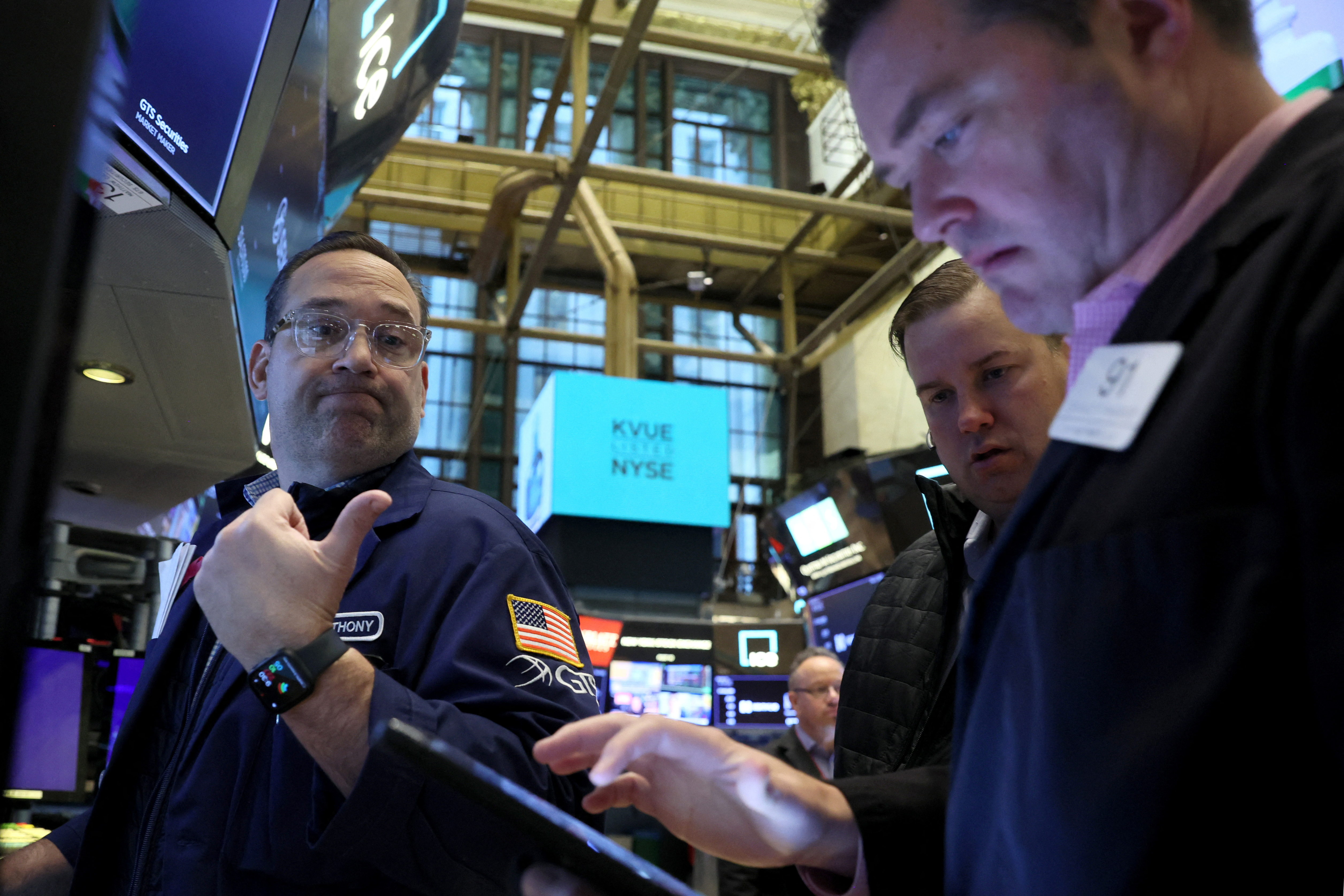

[1/3] Traders work on the floor of the New York Stock Exchange (NYSE) in New York City, U.S., May 4, 2023. REUTERS/Brendan McDermid
TOKYO, May 9 (Reuters) – A gauge of global equities fell on Tuesday after weak Chinese trade data sparked concerns about China’s domestic demand recovery, while the impasse over the U.S. debt ceiling sparked a sharp sell-off in short-dated Treasury bills.
A resumption of a slide in shares of regional banks sent the major stock indexes on Wall Street lower as markets await a meeting between President Joe Biden and top Republican lawmakers about raising the $31.4 trillion debt ceiling later in the day.
Investors fear a government default if Congress fails to resolve the debt ceiling deadlock as early as June 1. Failure to raise the limit would cause a huge hit to the U.S. economy and weaken the dollar as the world’s reserve currency, Treasury Secretary Janet Yellen warned on Monday.
“If Janet Yellen is right about the early June date, you got to be careful about the shorter-dated bills. Our calculation shows she’s not incorrect,” said Steven Ricchiuto, U.S. chief economist at Mizuho Securities USA LLC in New York.
“The cash flow numbers have deteriorated,” he said.
The 1-month Treasury bill yield surged 22.7 basis points to hit 5.689% and yields on 2-month bills climbed 14.6 bps to 5.283% as investors sold off notes that mature around the time the U.S. debt limit could be hit.
Longer-dated Treasury yields were little changed as investors waited for key U.S. consumer price inflation data on Wednesday.
The two-year Treasury yield, which typically moves in step with interest rate expectations, rose 1 basis points to 4.022%.
The dollar edged higher against major currencies, with the dollar index up 0.256%.
MSCI’s gauge of global equity performance (.MIWD00000PUS) shed 0.51% after customs data showed China’s imports contracted sharply in April, while exports rose at a slower pace, reinforcing signs of feeble domestic demand.
“When it comes to the Chinese market, you have the question coming from investors now about the strength of the recovery,” said Frank Benzimra, Societe Generale’s Hong Kong-based head of Asian equity strategy.
A string of downbeat corporate updates soured sentiment in Europe, leading the pan-regional STOXX 600 index (.STOXX) to lose 0.58%.
Shares of PacWest Bancorp PACW.O led declines in U.S. regional lenders, falling 3.0%. The KBW Regional Banking Index (.KRX) was 1.4% down.
The Dow Jones Industrial Average (.DJI) fell 0.14%, the S&P 500 (.SPX) slipped 0.44% and the Nasdaq Composite (.IXIC) dropped 0.57%.
Oil prices fell, giving up some of the previous two sessions’ strong gains, as caution reigned ahead of U.S. inflation figures that will be key to the Federal Reserve’s monetary policy.
Money markets currently expect two quarter point rate cuts by year-end, with a risk of a third. But the probability of another rate hike in June stands at 12.0%, according to CME’s FedWatch tool.
Economists forecast a slight moderation in the core inflation number to 5.5% annually for April, matching February’s print, which was the lowest since the end of 2021.
U.S. crude fell 1.28% to $72.22 per barrel and Brent was at $76.02, down 1.29% on the day.
Gold prices edged higher as some investors sought cover from economic uncertainty, including the debt ceiling deadlock.
Spot gold advanced 0.2% to $2,026.21 an ounce.
Reporting by Kevin Buckland; Editing by Stephen Coates
Our Standards: The Thomson Reuters Trust Principles.





